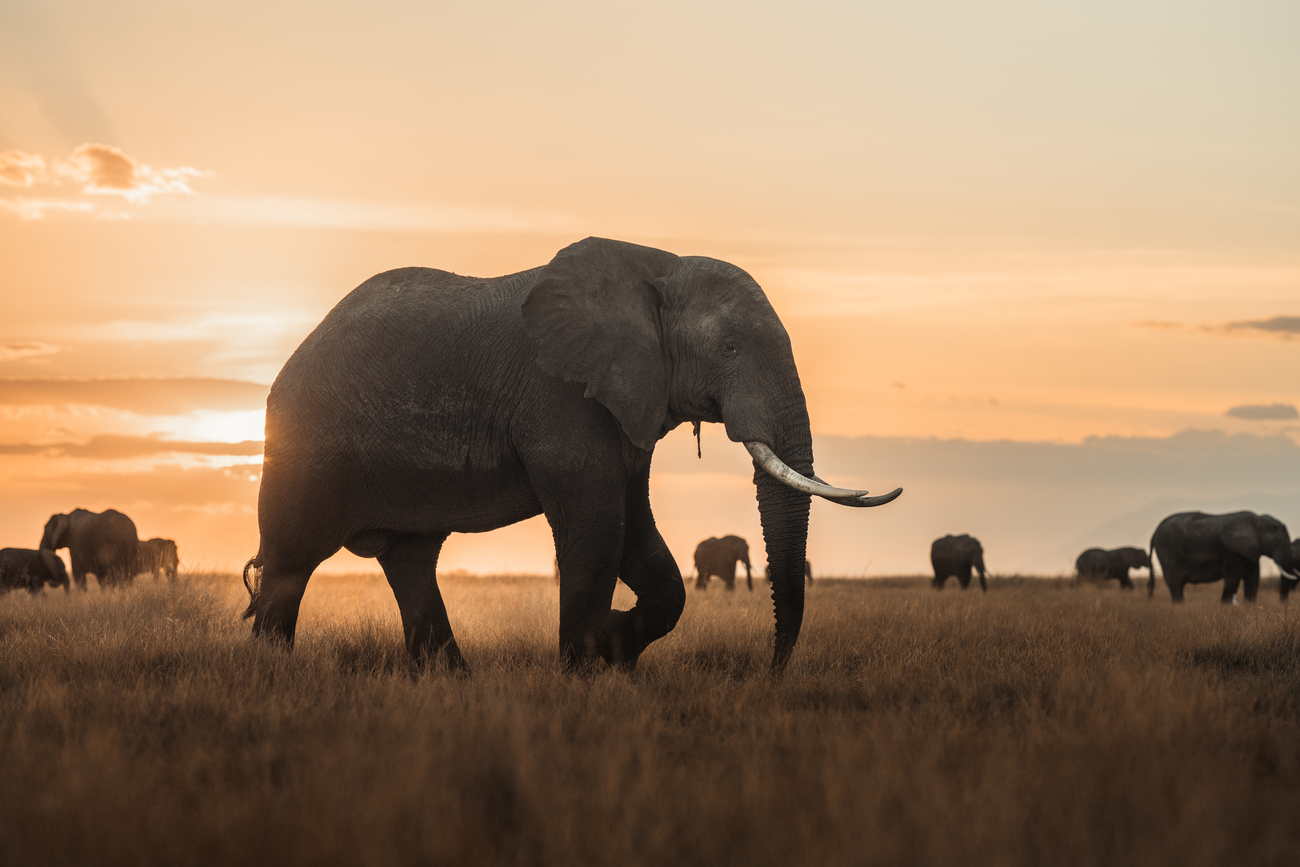in Africa, poachers are killing elephants every day
in Africa, poachers are killing elephants every day
This project was funded by the European Commission and TUI. EU funding was Jan 2018 – Nov. 2020 TUI was Dec. 2017 – Nov 2020
Today, we are protecting elephants by stopping poachers before they strike.
Problem
Poaching is the cause of three out of every five African elephant deaths. It is such a widespread problem that it even affects how these animals evolve. For instance, in high-poaching areas, baby elephants are increasingly born without any tusks.
Poaching doesn’t just harm elephants. It harms park rangers, too. Nearly one hundred rangers die in the line of duty every year. Last year, half of those deaths were at the hands of poachers.
Solution
When we saw that ordinary approaches to stopping elephant poachers wasn’t working, we tried something new. We connected people who had never worked together before—local residents and law enforcement, national park rangers and military Intelligence officers who specialized in counterterrorism. The result is a rapid response network called tenBoma.
The network is named after an East African saying that a community becomes safer when ten houses come together to start looking out for each other. tenBoma scales that philosophy from the urban environment to the bomas, or homesteads, which buffer national parks and protected areas, and typically house vital wildlife dispersal and corridor areas.
Through tenBoma, we identify and stop potential threats -- like human-wildlife conflict -- and break up wildlife crime networks. We use sophisticated technologies and counterterrorism tactics to harness, analyze, and distribute information about poacher hotspots. Then, we step up patrols in those places and ask people in the villages to report suspicious activities to law enforcement officers.
What is tenBoma?

At the same time, we train rangers to investigate crime scenes, so they can proactively respond to poaching incidents. We assist local communities with human wildlife-conflict mitigation strategies, relying heavily on reporting from men and women to drive predictive analytics and preemptive responses.
impact
We launched our pilot initiative in Kenya’s Tsavo Conservation Area. One day, a community member saw three suspected poachers travelling near Tsavo. They provided a tip through our reporting line.
Kenyan law enforcement officials were alerted, arresting the three men and seizing more than 200 kilograms of ivory. Those arrests gave law enforcement officers more information about the poaching network, which led to the arrest of an international ivory buyer in a neighborhood just outside of Nairobi.
Thanks to these kinds of successes, tenBoma has expanded to include protected areas, community lands, and conservation areas from the Mara-Serengeti to Greater Kilimanjaro, to Mombasa in Kenya and Tanzania, and from Queen Elizabeth to Kampala in Uganda.
we are all safer when we look out for each other.
Every donation helps to support our current operations, grow our reporting network, recruit new partners—community organizations, conservancies, government agencies, and international organizations—and expand tenBoma to other communities.